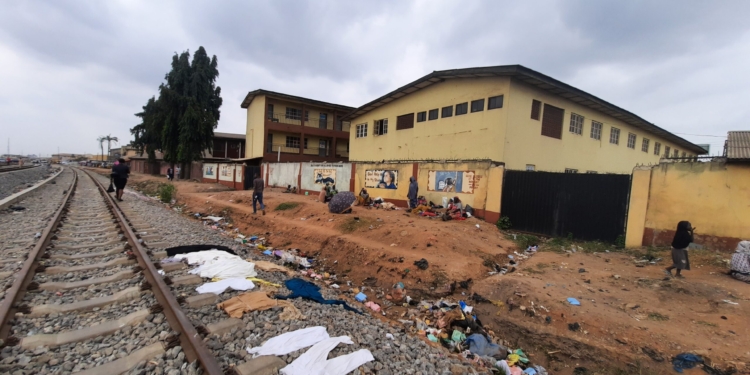Nigeria is currently the most populous country in Africa and seventh in the world with over 200 million people, according to Worldometers. Of these figures, about 108 million are estimated to be homeless.
This disturbing data is constantly on the rise as the government at different levels continues to embark on forceful eviction of people from their homes. This has resulted to Nigerians living in makeshift accommodations at every available corner, under the bridge and even shanties.
Amnesty International has also released a study that reveals that 1.7 million people in Northeast Nigeria are displaced by effects of terrorism and they’re all likely to end up in Lagos.
While climate change has made it difficult to predict and differentiate between raining and dry season, the last few weeks have been extremely cold in some parts of Lagos and Nigeria as a whole.
Unfortunately, residents of Railway line in Fagba area of Agege, Lagos, though an illegal settlement, are condemned to sleep under the open sky.
Laced all around the railway are women and men sitting comfortably begging for alms from passersby while the children walk around to accost people so they are able to make some income for the day.
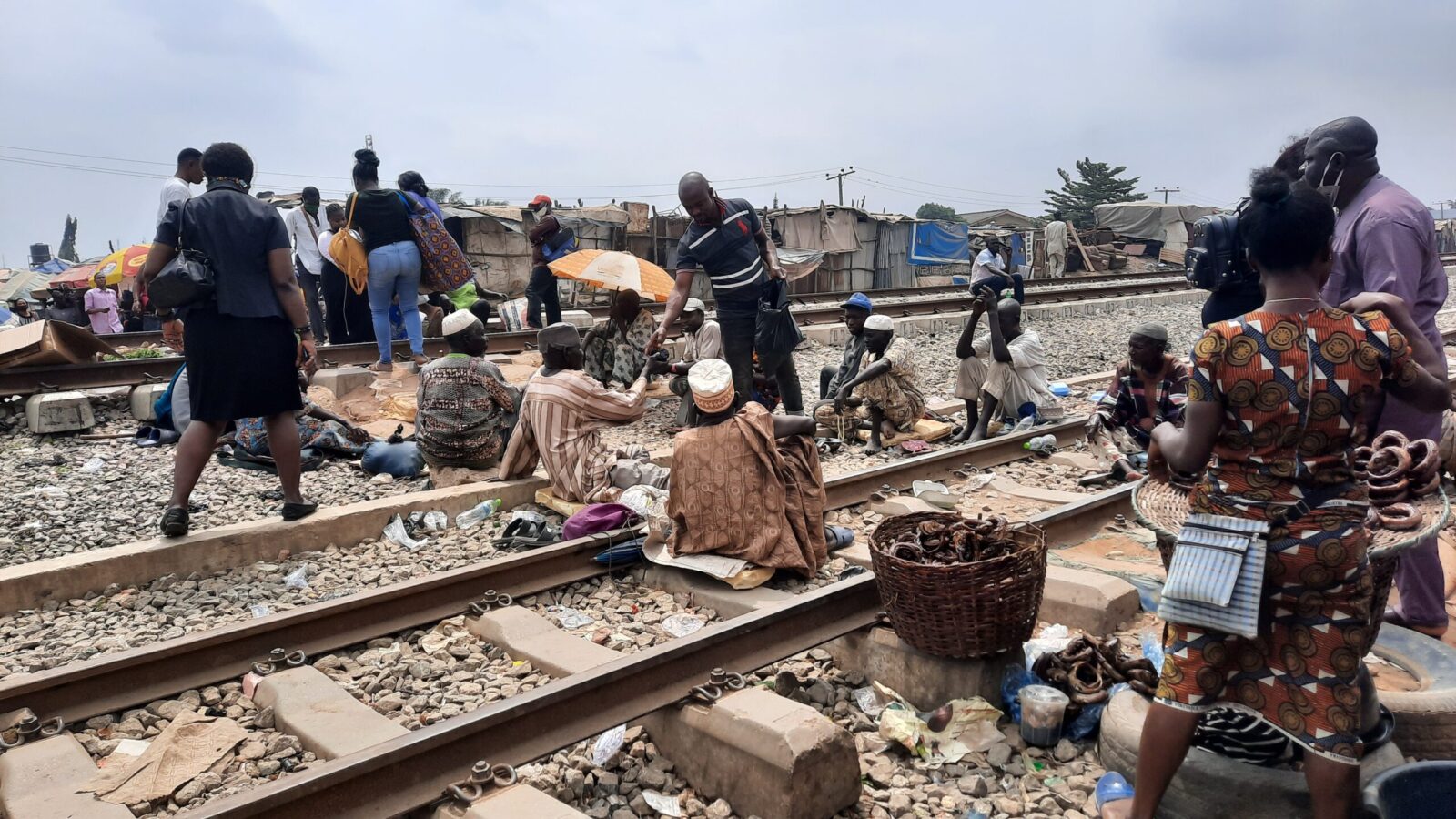
These categories of persons also find the comfort of the railway side suitable when they retire from their business at the end of the day.
Some persons have found the railway side as the most comfortable place to rest their head at the end of their daily ‘hustle’ and some have had to make it more comfortable by building tarpoline or make shifts kiosk with aluminium.
Rabiliu Adamu, a young man in his twenties, is one of those who reside by the railway and the only roof over his head is the mosquito net that he is able to set up before going to sleep.
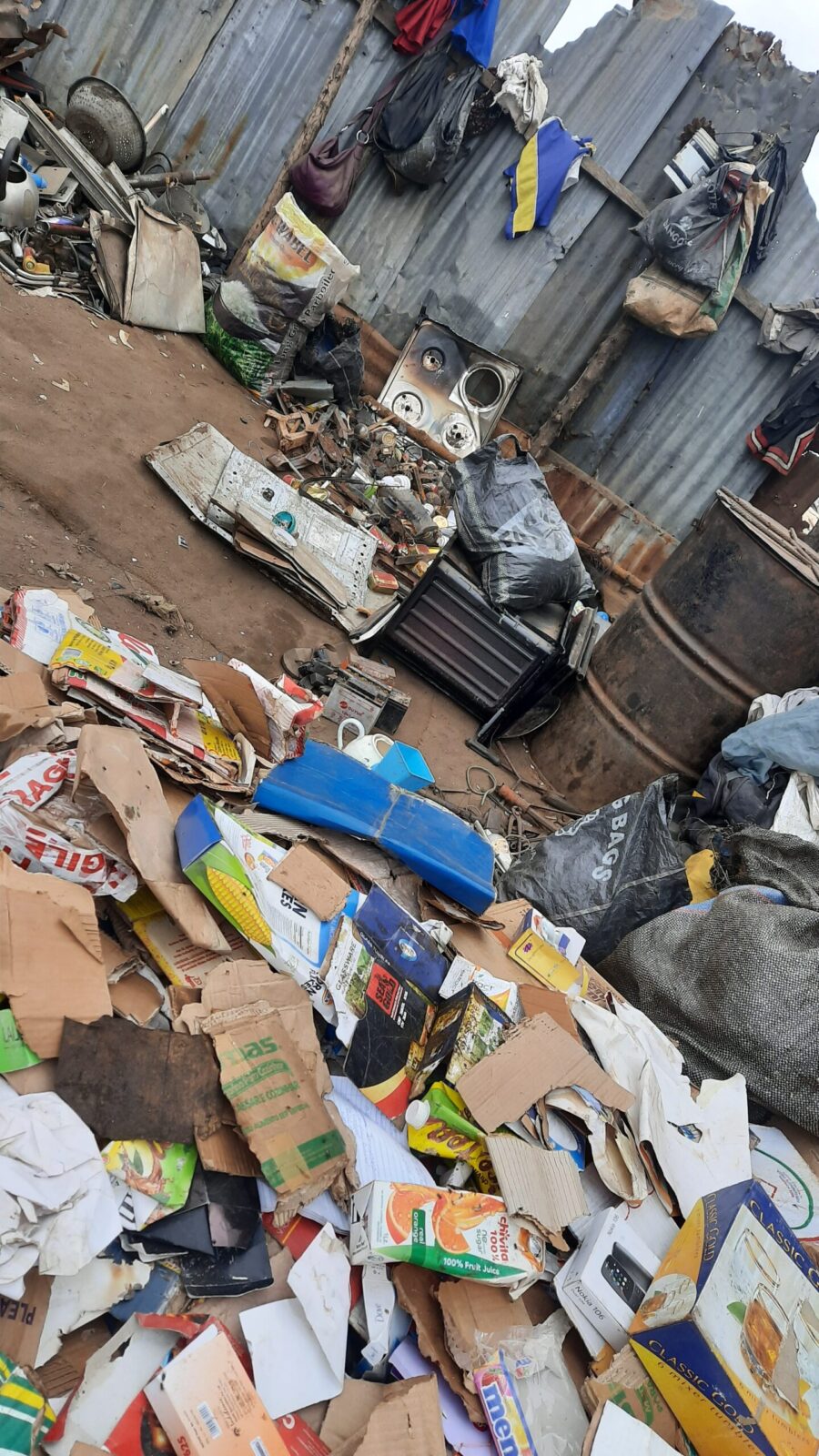
Adamu migrated to Lagos from Zamfara State in search for a greener pasture but ended up selling stove parts to sustain his stay in Lagos. Sharing his story, he narrated how he treks different part of Lagos to sell his goods, after which he resigns to the railway line to sleep in preparation for the next day.
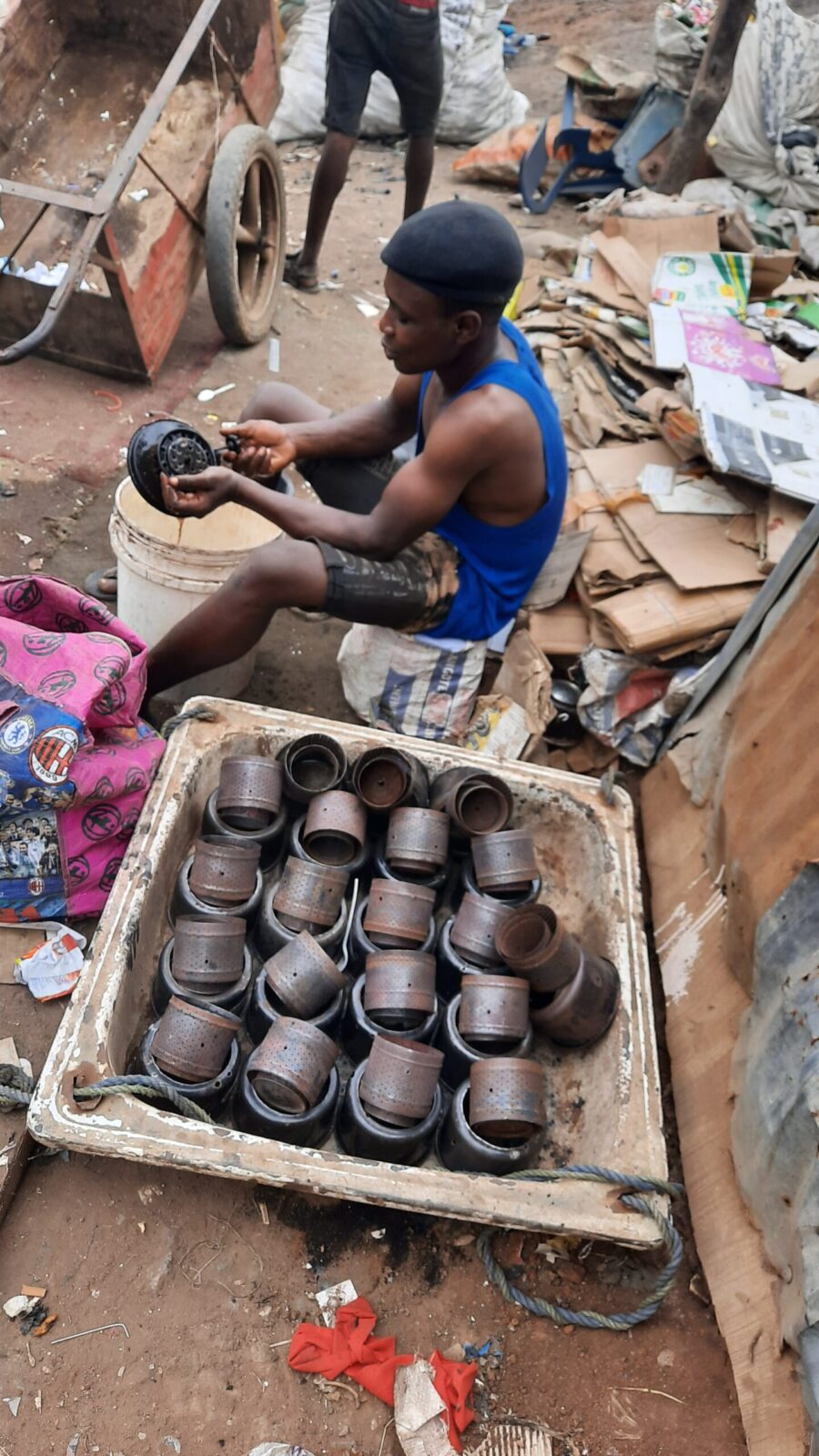
“I try to keep some money and to send to my family in Zamfara,
“I can say I am comfortable with this place because I have no other option and I make little money that can not be enough for me to rent an apartment,” he added.
Moved with the tales of the ease of doing business and how fortune is easy to come by in Lagos State, Ayuba Musa left Cote D’ivoire to Lagos, Nigeria, hoping to secure a decent job, make money and return to his country.
This dream was shattered in his first few weeks in Lagos as Musa, a father of two, had to resort to working as a scavenger at Lagos dumpsites.
Musa scouts for cartons in different refuse bins, which he resells to earn money. To top his plight, Musa became one of the figures of homeless people in Lagos as he sleeps at the Agege railway line.
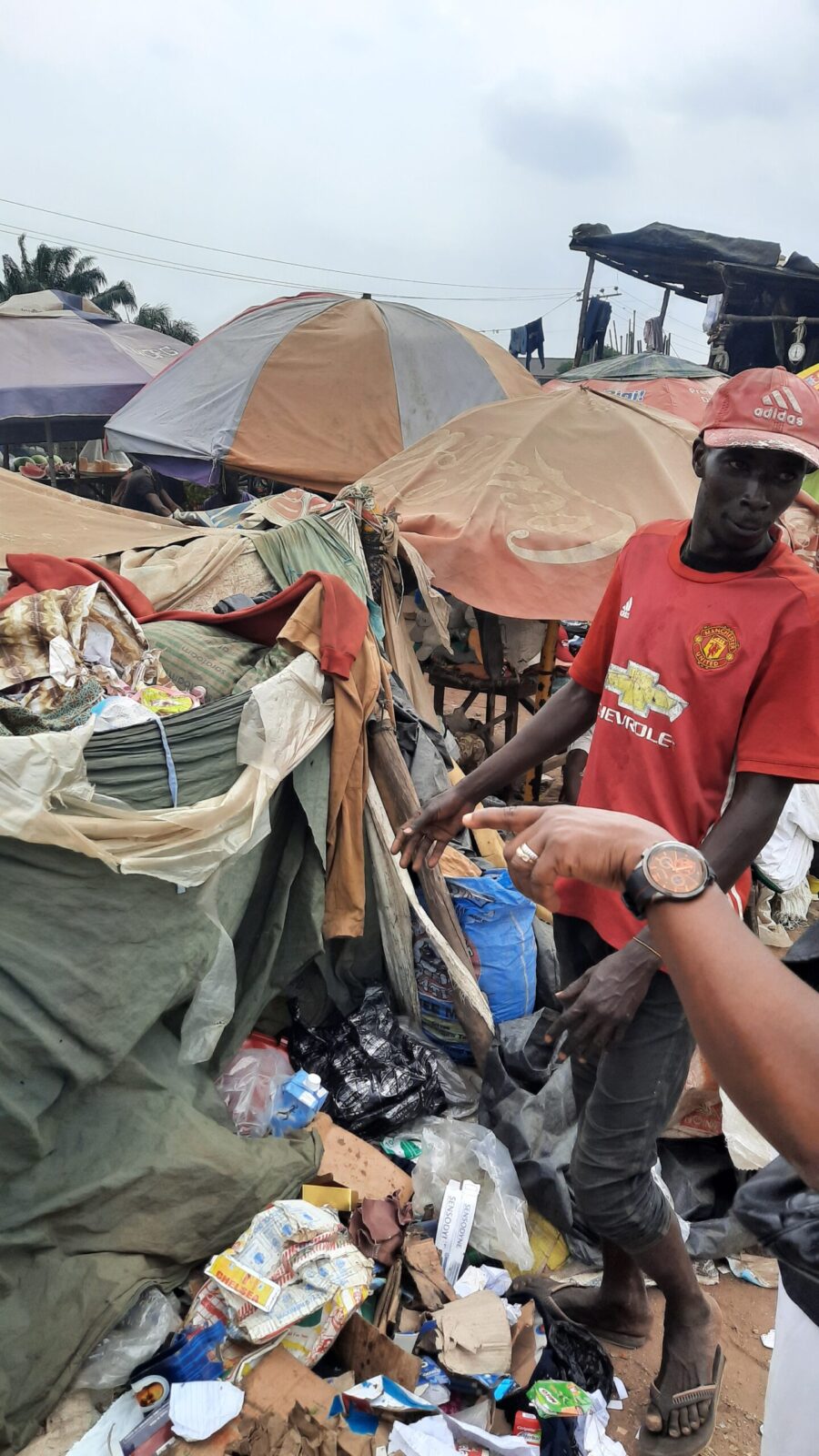
The father of twin, a male and a female, said he is able to send money to his family outside the country from the little money he earns from the sale of the cartons.
“I make at least 1,500 naira on a daily basis through which I’m able to feed myself and save enough to send to my wife,” he explained.
Though he is interested in going back to his country, he said the border closure has been a major challenge.
How government intervention can help improve the situation
As seen in the past, the government finds it easy to throw away persons staying in shanties or informal settlements without adequate provision for alternatives and this has not in any way helped the situation, it would rather lead to the creation of more shanties in other places.
While the railway and some other shanties are not places that are comfortable for people to reside, lack of a better option is what has caused these residents to reside in these places.
Giving recommendations on the role of government in providing shelter for citizens, Victoria Ibezim-Ohaeri, Executive Director, Spaces for Change explained that the reasons some people reside in informal settlements is because they can’t afford accommodation in facilities that are available for rent.
Ohaeri stressed that people have resorted to finding shelter according to their capability because it is a necessity. She noted that shelter is a necessity and people have to find it according to their capability, which is mainly caused by unemployment and poverty.
“The government need to recognize that no matter how the economy is, there will still be people who cannot afford to pay for accommodation,” she added.
Ohaeri recommended that the government through taxes collected must invest in social housing as part of measures to cater for the poorest of the poor.
She said: “Just like other countries of the world, there is need for the government to adopt the Social housing mechanism where the government funds and provides for the poorest of the poor.
“With the scheme, the government can establish those who are unable to pay rent and the government can make provisions available for those people.”
The Space for Change ED also noted that subsidising the cost of housing for people would also help to provide accommodation for those who cannot afford it and as such there won’t be informal settlements or make shifts apartments which could face the threats of eviction.
She explained that “just the same way fuel is subsidized, the government needs to subsidize housing for a certain category of persons in the society because housing is a necessity.”
On his part, Deji Akinpelu, Co-founder RethinkingCities noted that there is no single solution that fits the housing deficit n Lagos because of the peculiarities in various community across the state.
Akinpelu, however, advised that there is a need for the government to adopt inclusive approaches to providing accommodation for residents in the state.
“If the government truly wants to provide housing facilities for the urban poor, it has to meet their needs. As such, a redesigned ‘face me I face you’ approach can be adopted so that the urban poor can have access to shelter,” he added.
He urged the Lagos State Government to ensure that their actions do not indirectly frustrate the poor in the state, adding that, “Lagos should be an inclusive city where the poor and the rich can live together, it should not be built solely for the rich.”

